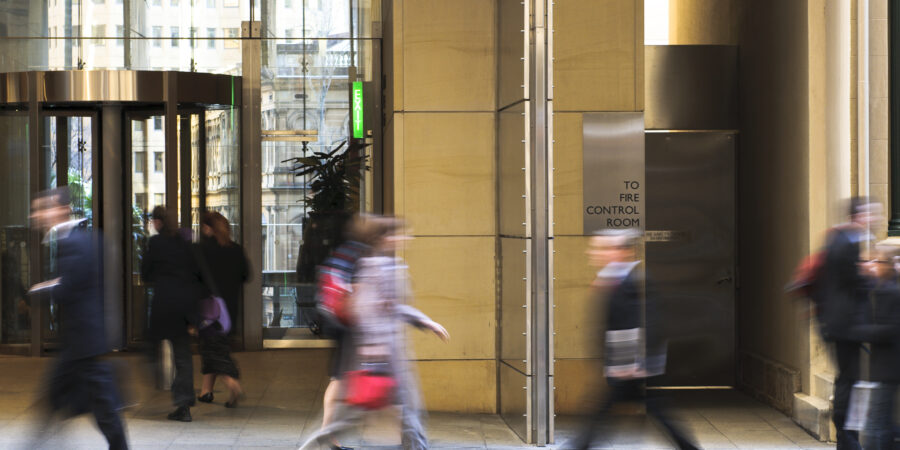What is Premises Liability?
A premises liability claim is filed when an individual becomes injured on someone else’s property. The premises liability claim may be filed against the person who owns, manages or occupies the property where a violation of law occurs against another. Premises liability laws vary from state to state. Such laws include specific procedures that cover claims against a landlord for alleged wrongful injuries on their property. While some laws are state-specific, all states permit a person, who was injured on another person’s premises, the right to file a notice of claim with local or state authorities.
Premises Liability Claims
When a premises liability claim is filed, the injured party has the right to recover damages for injuries sustained, related medical expenses, lost wages and court costs. In some states, the status of the person visiting the building is used to determine whether they are eligible for the premises liability claim. One may require an attorney to guide them through the legal process.
1. Premises Liability Insurance Definition
Premises liability insurance is a type of insurance policy that provides coverage to property owners for legal liability arising from injuries or damages that occur on their premises. This type of insurance is typically purchased by property owners who own commercial or residential properties such as retail stores or offices. In short, premises liability insurance protects property owners from financial loss if a visitor is injured on their property.
2. Is Premises Liability the Same as Negligence?
Negligence and premises liability are two legal concepts often associated with personal injury cases. However, the two have distinct differences. Negligence refers to a failure to take reasonable care to prevent harm to others. In a personal injury case, the plaintiff has to prove that the defendant owed a duty of care to the plaintiff, that the defendant breached that duty and that the breach caused the plaintiff’s injuries.
On the other hand, premises liability refers to a property owner or occupant’s legal responsibility for injuries on their property. Property owners must maintain a safe environment for visitors; if they fail, they may be liable for any damages. Negligence and premises liability both involve the concept of fault. Negligence typically applies to a broader range of situations, while premises liability refers to injuries on a property owners’ premises.
3. Types of Premises Liability Cases
-
Slip and Fall Accidents
Slip and fall accidents are the most common type of premises liability cases. These cases involve injuries that result from a fall or trip on a slippery or uneven surface while visiting someone else’s property. Slip and fall injuries can result in severe damage to a person such as broken bones, head injury, spinal cord injury, trauma and back pain.
-
Dog Bite Injuries
Dog bite injuries are another common type of premises liability case. Dog bites usually occur when the owner does not properly secure or control a dog. The dog may bite an unsuspecting visitor and in return, the victim may suffer serious illnesses that affect their health, like rabies. Victims of dog bites can file a premises liability claim against the dog owner.
-
Swimming Pool Accidents
Swimming pool accidents result in more deaths than all natural disasters combined. In many swimming pool accidents, a person is injured due to faulty pool equipment. If a person suffers an injury while swimming, they may file a premises liability case against their landlord.
-
Negligent or Inadequate Security
Landlords have a special duty of care to provide adequate security for their tenants. If the landlord fails to provide adequate security, they may be responsible for any accidents arising from insecurity on their property.
-
Children on Property
Landlords have a duty to supervise and control children on their property. If a child is injured while on the property, they may be able to claim a premises liability case against the landlord. Although the landlord is typically responsible for supervising a child on their property, they may be able to avoid liability in certain circumstances if they demonstrate that they made reasonable efforts to prevent the injury.
-
Defective Conditions
Landlords may be liable for injuries if they have negligently failed to inspect and maintain their property or are aware of defective conditions but fail to correct them.
-
Toxic Exposure
Suppose an individual is exposed to toxic chemicals or waste on a property and suffers from harmful toxins. In this case, it may be possible to file a premises liability claim against the property owner or occupant. Please note that this claim would succeed only if the landlord knew of the toxic exposure and failed to warn or protect other individuals from the risk.
-
Dangerous Property
In most states, property owners are responsible for maintaining their properties reasonably and safely. Suppose an area of the property contains an unreasonably dangerous or defective situation. If the owner fails to correct it, they may be held accountable for any injuries that occur as a result.
-
Retail Store Liability
Retail store owners have an obligation to provide a safe environment for their customers. Suppose an area of the store contains an unreasonably dangerous or defective condition and the owner fails to correct it. In this situation, the store owner may be held liable for any injuries that occur as a result.
-
Restaurant Liability
Restaurant owners have a special duty to protect customers from unreasonably dangerous conditions. If a restaurant’s floor is slippery or poorly lit and an injury occurs, it may be possible to file a premises liability claim against the property owner or occupant. This claim would succeed only if the landlord knew the danger and failed to take reasonable steps to prevent the injury.
4. What Does Premises Liability Insurance Cover?
Premises liability insurance covers the property owner or occupant against claims, lawsuits and liabilities arising from injuries on their property. Here are some of the specific types of coverage included in the policy:
-
Property Damage
Premises liability insurance pays for damage to buildings, fences and other property the policyholder owns. It also covers damage to other people’s property.
-
Legal Fees
A premises liability policy may also protect the owner against a lawsuit or claim for legal fees from an injured person. Additionally, such may cover legal expenses associated with defending against a liability claim. This may include both lawyer and court fees.
-
Settlement Costs
If the policyholder is found at fault in a premises liability claim, the insurer may compensate for all reasonable costs of settling the claim. The fees may include money for medical bills and special equipment, out-of-pocket expenses and lost wages.
5. What are Premises Liability Claims?
Premises liability claims are legal claims brought against a property owner or occupant for injuries or damages sustained on their property. In a premises liability case, the injured person (or the “plaintiff”) files a claim with the court against the defendant. The plaintiff raises allegations supporting their claims and the defendant responds, disputing them.
6. How to Prove Premises Liability
In order to successfully prove premises liability, the plaintiff has to prove that the defendant breached their duty of ensuring their property is safe and did not take reasonable steps to protect the plaintiff. The plaintiff has to prove that the injury occurred while they were on the defendant’s property. They also have to prove that the injuries were caused by the defendant’s failure to keep the property safe. The plaintiff might be required to produce evidence, including medical records, eyewitnesses, and physical evidence, such as photographs from the scene.
Disputes over a premises liability claim can be complex. Both parties should have qualified legal counsel to protect their rights and pursue their claims. If you have been injured while on someone’s property, it is recommended that you contact a personal injury lawyer in your state. They can help you learn more about your legal options and help you pursue the compensation that you deserve for your injuries.
Questions on premises liability?
We can help – (855) 559-1225
At JT Legal Group, our 30+ years of combined experience allows us to diligently achieve settlements for our deserving clients. Our office is so confident we can win the best possible result for our clients, that we work on a contingency basis. This means we don’t get paid until we settle our client’s matter. Contact our team today for immediate support.
Your victory starts here.
Click to call us now!
[NOTE:] Attorney Advertising: Nothing posted on this blog is intended, nor should be construed, as legal advice. Blog postings and hosted comments are available for general educational purposes only and should not be used to assess a specific legal situation. Nor does any comment on a blog post create an attorney-client relationship. The presence of hyperlinks to other third-party websites does not imply that the firm endorses those websites, their contents, or the activities or views of their owners.
Media Contact: Jesamine De Leon
[email protected]
(855) 559-1225



